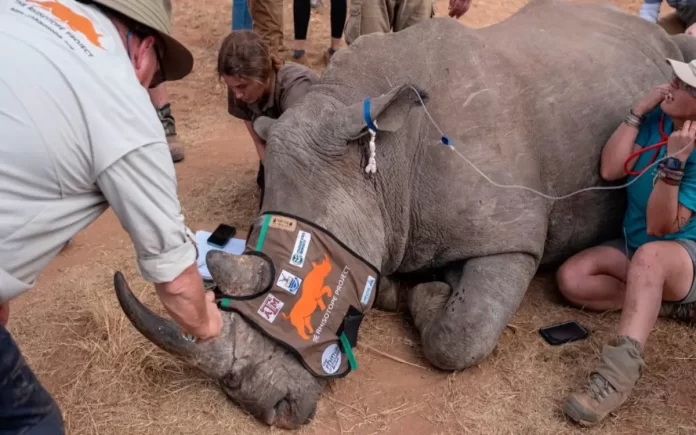In a groundbreaking effort to safeguard rhinos from illegal hunting, South African scientists have taken an unconventional approach: inserting radioisotopes directly into rhino horns. This innovative project aims to deter poachers and enhance horn tracking.
After 3-years of meticulous and dedicated hard work, the Rhisotope Project at Wits has successfully inserted low doses of radioisotopes into 20 live rhinoceros.
Radioisotope Implants:
- Twenty rhinos at The Rhino Orphanage recently underwent a procedure where non-toxic radioisotopes were implanted directly into their horns.
- These radioisotopes emit detectable radiation, allowing for efficient tracking and monitoring.
Border Monitoring:
- At international borders, radiation monitors will identify the presence of these radioisotopes.
- This technology enables authorities to track rhino horns and prevent their illegal trade.
High Value and Poaching:
- Rhino horns are highly prized commodities on the black market, often fetching prices higher than gold or diamonds.
- By making the horns less desirable through radioisotope implantation, this project aims to reduce poaching incidents.
Safety Measures:
- Expert veterinarians ensured the safety of the procedure for the animals.
- The health of the rhinos will be closely monitored over the next six months.
This initiative represents a promising step toward preserving these magnificent creatures and ensuring the survival of their species.



